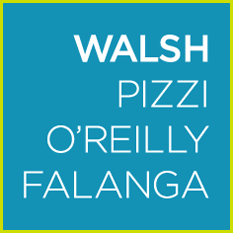Client Alert – New Jersey Governor Signs Executive Order Permitting the Resumption of Non-Essential Construction
This memorandum updates our previously published Client Alert concerning guidance for construction companies relating to the COVID-19 pandemic (available here). On May 12, 2020, New Jersey Governor Phil Murphy signed Executive Order No. 142 (2020), permitting the resumption of non-essential construction effective 6:00 a.m. on May 18, 2020, among other things. All construction projects must comply with the social distancing, safety, and sanitization requirements that are outlined in detail in the Executive Order.
Noting that “construction sites are generally limited to workers, rather than customers and other members of the public, and so involve less risk of significant transmission of COVID-19 in the community,”[i] Executive Order 142 directs businesses engaged in construction projects, notwithstanding whether the projects were deemed as essential under Executive Order 122 (2020), to comply with the following requirements:[ii]
- Prohibit non-essential visitors from entering the worksite;
- Engage in appropriate social distancing measures when picking up or delivering equipment or materials;
- Limit worksite meetings, inductions, and workgroups to groups of fewer than 10 individuals;
- Require individuals to maintain six feet or more distance between them wherever possible;
- Stagger work start and stop times where practicable to limit the number of individuals entering and leaving the worksite concurrently;
- Identify congested and “high-risk areas,” including but not limited to lunchrooms, breakrooms, portable rest rooms, and elevators, and limit the number of individuals at those sites concurrently where practicable;
- Stagger lunch breaks and work times where practicable to enable operations to safely continue while utilizing the least number of individuals possible at the site;
- Require workers and visitors to wear cloth face coverings, in accordance with CDC recommendations, while on the premises, except where doing so would inhibit the individual’s health or the individual is under two years of age, and require workers to wear gloves while on the premises. Businesses must provide, at their expense, such face coverings and gloves for their employees. If a visitor refuses to wear a cloth face covering for non-medical reasons and if such covering cannot be provided to the individual by the business at the point of entry, then the business must decline entry to the individual. Nothing in the stated policy should prevent workers or visitors from wearing a surgical-grade mask or other more protective face covering if the individual is already in possession of such equipment, or if the businesses is otherwise required to provide such worker with more protective equipment due to the nature of the work involved. Where an individual declines to wear a face covering on the premises due to a medical condition that inhibits such usage, neither the business nor its staff shall require the individual to produce medical documentation verifying the stated condition;
- Require infection control practices, such as regular hand washing, coughing and sneezing etiquette, and proper tissue usage and disposal;
- Limit sharing of tools, equipment, and machinery;
- Where running water is not available, provide portable washing stations with soap and/or alcohol-based hand sanitizers that have greater than 60% ethanol or 70% isopropanol;
- Require frequent sanitization of high-touch areas like restrooms, breakrooms, equipment, and machinery;
- When the worksite is an occupied residence, require workers to sanitize work areas and keep a distance of at least six feet from the occupants; and Place conspicuous signage at entrances and throughout the worksite detailing the above mandates.
Finally, Executive Order 142 expressly supersedes the provisions of Executive Order 122 which halted operations of non-essential construction projects and it also applies safety provisions of Executive Order 122 to non-essential construction.[iii] New Jersey Office of Emergency Management (NJOEM) Administrative Order No. 2020-11 (permitting construction of religious facilities and deeming these projects essential construction projects) is also hereby superseded in full.[iv]
For more information regarding contractor rights and remedies during this unprecedented time, please contact Thomas J. O’Leary, at [email protected] or (973) 757-1045, or Hector D. Ruiz, at [email protected] or (973) 757-1019.
- [i] Executive Order 142 (2020), at page 3.
- [ii] Executive Order 142 (2020), at ¶ 2.
- [iii] Id., at ¶ 3.
- [iv] Id.
Walsh Pizzi O’Reilly Falanga LLP has prepared the content of this alert for general informational purposes. The content should not be considered advice, recommendations, or an offer to perform services. You should not act upon any information provided in this alert without seeking professional legal counsel from an attorney licensed to practice law in your jurisdiction. No representations are being made as to the completeness or accuracy of the information contained herein.

